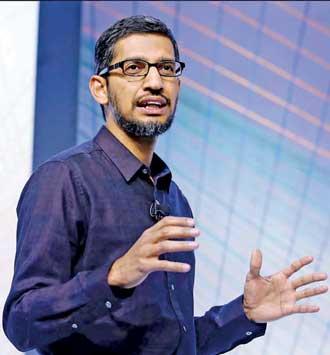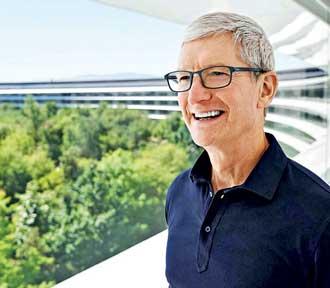|
|
In the modern age, technology is not just an industry; it’s the heartbeat of society. From how we communicate to how we work, learn, and shop, technology touches nearly every aspect of our daily lives. But behind these innovations, the true power lies in the hands of a select group of leaders, tech CEOs who are not just shaping the companies they lead but also the future of the world itself. Among the most influential of these figures are Elon Musk, Mark Zuckerberg, Tim Cook, Sundar Pichai, and Satya Nadella, whose decisions and visions have steered the direction of not only their companies but the entire tech ecosystem. In this article, we will explore how these powerful tech CEOs are influencing our future.
Elon Musk The Visionary Disruptor
$342.9 billion
Elon Musk is one of the most disruptive leaders in the tech industry, driving innovation across multiple fields. As CEO of Tesla, SpaceX, Neuralink, and The Boring Company, his influence extends from electric vehicles to space exploration. Under Musk’s leadership, Tesla has transformed the automotive industry, making electric vehicles mainstream and accelerating the shift to sustainable energy. SpaceX, meanwhile, has revolutionized space travel with reusable rockets, significantly reducing costs and advancing plans for interplanetary exploration. Musk envisions a future where humans become a multi-planetary species, with Mars missions already in development. Beyond transportation, his ventures include Neuralink, which seeks to merge the human brain with AI, and The Boring Company, tackling urban congestion with underground tunnels. Though still emerging, these projects showcase Musk’s relentless drive to shape the future. His leadership continues to push technological boundaries, redefining what’s possible in multiple industries.
SpaceX, meanwhile, has revolutionized space travel with reusable rockets, significantly reducing costs and advancing plans for interplanetary exploration.
Mark Zuckerberg Social Media Architect
$199.5 billion
As the co-founder and CEO of Meta (formerly Facebook), Mark Zuckerberg has fundamentally reshaped how we interact with the digital world. Since the founding of Facebook in 2004, Zuckerberg has been at the forefront of the social media revolution, connecting billions of people globally and enabling a new era of communication. Meta’s evolution has been marked by Zuckerberg’s aggressive acquisition strategy, with platforms like Instagram and WhatsApp becoming cornerstones of the company’s portfolio. However, Zuckerberg’s boldest move yet is the pivot to the metaverse; a fully immersive virtual reality (VR) world that he believes will be the next iteration of the internet. The metaverse, according to Zuckerberg, will offer users new ways to socialize, work, and play in a 3D digital space. By investing heavily in virtual and augmented reality technologies, Meta aims to create a virtual economy where digital assets, from real estate to fashion, hold real-world value. While the metaverse is still in its early stages, Zuckerberg’s determination to lead the charge could redefine the concept of reality itself. However, Zuckerberg’s leadership has not been without controversy. Facebook has faced significant scrutiny over privacy concerns, misinformation, and its role in shaping public opinion. Despite these challenges, Zuckerberg’s commitment to innovation and his focus on building the next great digital frontier show that his influence in the tech world remains formidable.
The metaverse, according to Zuckerberg, will offer users new ways to socialize, work, and play in a 3D digital space.
Tim Cook The Architect of Apple’s Legacy
$2.4 billion
Tim Cook, who took over as Apple’s CEO in 2011, has solidified the company’s position as the world’s most valuable tech giant. While Steve Jobs pioneered the iPhone, Cook’s leadership has driven Apple’s expansion with innovations like the Apple Watch, AirPods, and the M1 chip, while refining its flagship products. He has also shifted Apple’s focus toward services, launching Apple Music, iCloud, and Apple TV+, diversifying revenue streams and strengthening resilience amid market shifts. Cook’s commitment to user privacy has set Apple apart, introducing features like App Tracking Transparency and end-to-end encryption, reinforcing trust in an era of growing data concerns. His steady, strategic approach has ensured Apple’s continued dominance, balancing innovation with long-term growth. By prioritizing user experience, privacy, and business sustainability, Cook has proven that Apple’s success isn’t just about visionary products but also about building a lasting, trusted ecosystem for consumers worldwide.
Cook’s commitment to user privacy has set Apple apart, introducing features like App Tracking Transparency and end-to-end encryption, reinforcing trust in an era of growing data concerns.
Sundar Pichai Leading Google into the Future
$1.3 billion
Sundar Pichai, the CEO of Alphabet Inc. (Google’s parent company), has helped the tech behemoth transition from a search engine to a diversified global technology leader. Under Pichai’s leadership, Google has expanded its reach into areas like artificial intelligence (AI), cloud computing, and hardware, with products like Google Cloud, the Pixel phone, and Google Assistant. Pichai’s emphasis on AI has positioned Google as one of the leading innovators in this transformative field. Google’s AI technologies, from machine learning to natural language processing, power many of the company’s core services, including Google Search, YouTube recommendations, and Google Translate. Additionally, Google’s parent company, Alphabet, has made significant strides in autonomous driving through its Waymo division and health tech with Calico. Beyond business, Pichai has been a vocal advocate for responsible AI development and the ethical considerations of emerging technologies. He has called for government regulation of AI to ensure that its benefits are realized while mitigating potential risks, such as job displacement and privacy violations. Pichai’s balanced approach to innovation and regulation has made him one of the most respected CEOs in tech today.
Pichai’s emphasis on AI has positioned Google as one of the leading innovators in this transformative field.
Satya Nadella Reinventing Microsoft
$1.4 billion
When Satya Nadella took over as CEO of Microsoft in 2014, the company was facing significant challenges. Under his leadership, Microsoft has transformed from a traditional software giant into a leader in cloud computing and artificial intelligence. Nadella’s strategic shift toward cloud services, led by Azure, has been a major driver of Microsoft’s growth. Nadella has also refocused Microsoft’s efforts on collaboration and productivity tools, with products like Microsoft Teams and Office 365 dominating the enterprise software market. His emphasis on cross-platform integration and cloud-first solutions has helped Microsoft remain competitive in an increasingly cloud-driven world. Nadella’s leadership extends beyond business. He has fostered a culture of empathy and inclusivity at Microsoft, championing diversity in tech and spearheading initiatives for corporate social responsibility. His approach to leadership, which blends business acumen with a strong ethical compass, has earned him widespread praise as one of the most transformative CEOs of his generation.
His emphasis on cross-platform integration and cloud-first solutions has helped Microsoft remain competitive in an increasingly cloud-driven world.
The Future of Tech and the CEOs Leading the Charge
As we look to the future, these tech CEOs are poised to shape the next phase of technological evolution. Whether it’s Musk’s ambitions to colonize Mars, Zuckerberg’s vision of the metaverse, Cook’s commitment to privacy, Pichai’s AI-driven innovations, or Nadella’s cloud leadership, each of these leaders is pushing the boundaries of what technology can achieve. While the tech industry is still young and full of potential, the decisions made by these influential CEOs will determine the trajectory of the future. Will we see the dawn of a new space age, the rise of a digital metaverse, or the full integration of AI into our daily lives? Only time will tell. However, one thing is certain: the powerful tech CEOs of today are shaping a future we can only begin to imagine.




















